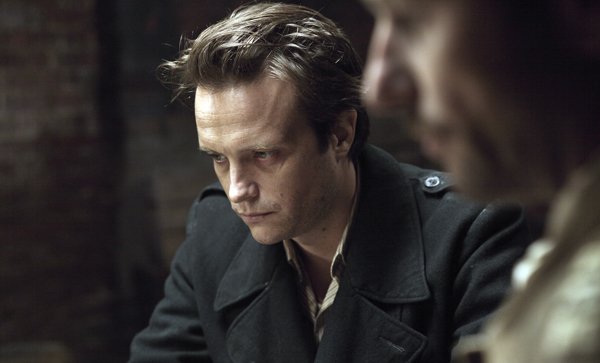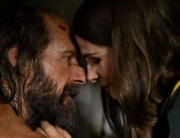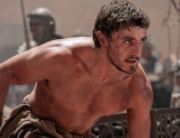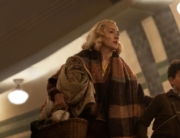Soldiers are easy to lionize, but the actions of civilians during wartime can be just as valiant, as director Christian Carion depicts in this old-fashion World War II opus. It’s a fascinating, humanistic look at the people who often don’t make it into the history books—those who aren’t out to win glory for their country but are simply trying to carve some peace out of the most wretched era in modern history. Tracking the interweaving journeys of everyone from a Belgian refugee to the village wino, Come What May is an exercise in split narrative similar to Crash, except that this film pulls it off.
In May, 1940, the inhabitants of Pas-de-Calais, a quaint village in the north of France, are shocked when they hear that the nearby town of Arras has fallen to the German advance. After some debate, Paul, the mayor (a deft Olivier Gourmet), decides that they will migrate south rather than suffer whatever the Nazis have planned for them. Among the caravan is Mado (Mathilde Seigner), his tough-as-nails wife, and Suzanne (Alice Isaaz), a young woman tasked with taking care of a motherless boy, Max (Joshio Marlon), after his father has been taken to prison. As the villagers travel, they struggle to find food, pass by scenes of horrifying carnage, and dodge machine gun fire as they’re strafed by Nazi aircraft. Ennio Morricone’s soaring score accompanies them all the while, undergirding the actors’ subtle performances.
Other storylines track Hans (August Diehl), Max’s father, as he escapes from prison and searches for his son by following him across the country through messages left on school blackboards. Hans meets Percy, a Scottish soldier (Matthew Rhys) trapped behind enemy lines who, mercifully, brings plenty of comic relief to the otherwise earnest film. (Their run-ins with a German film crew, in search of propaganda material, are particularly funny.) They can’t travel together forever, though; Hans is searching for his son, not fighting a war.
That little boy proves to be the heart of the film, pulling Hans and Suzanne into a sort of family-triangle that gives each of them meaning, and this is the real success of the movie: it’s not about history, or war, but about people trying to find each other. It’s a rare Second World War film in that it doesn’t fetishize Nazi cruelty, and, in fact, shows very little of it, preferring to focus on the more mundane struggles of more mundane people.
By the time the credits roll, the movie hasn’t exactly tied itself off with a bow—some plots are left up in the air, and some characters’ fates are left unknown. But its emotional core is completely resolved in a phenomenal scene on a German-controlled bridge that painstakingly tracks a girl’s enormous decision. The caravan marches on, certain to face many more threats before the journey is done. At this final moment, the characters find a moment of peace, what they’ve been searching for all along.

















Leave A Comment